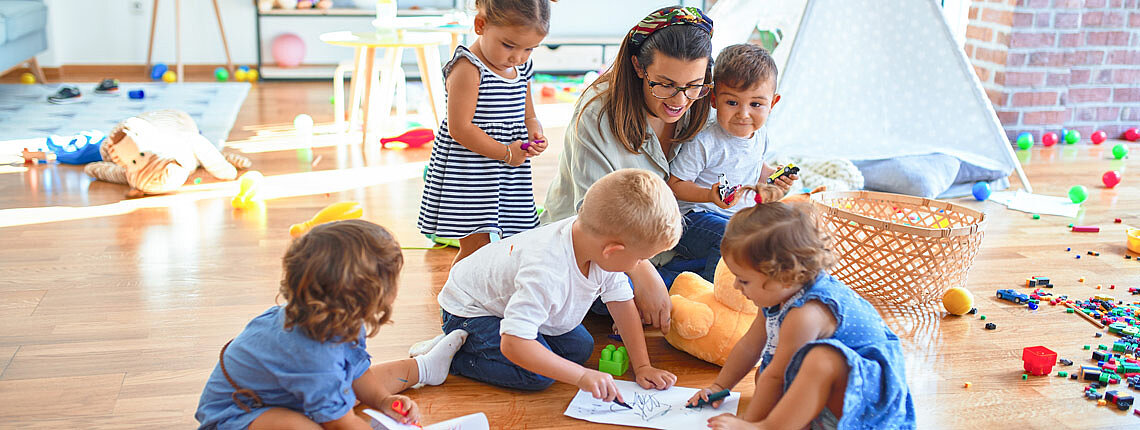Kleine Riesen, Little Giants & Petits Géants
Adjusting To Nursery
The first weeks are crucial for a child's adjustment to a child care setting. It provides parents and the child with trust in the new environment and ensures a long-term cooperation between parents and caregivers
What ist important?
Each child is different. Our expierence has proven that the also the adjustment phase is different for each child. While some children easily adjust to the daycare setting within the first days, others need four weeks to handle the new situation.
Therefore, we believe that there is no "one-size-fits-all" solution for adjusting children to daycare. Adjusting to child care requires high flexibility from both parents and caregiving staff. The child's needs and interests have to be always in the centre of attention.
The duration of the adjustment phase is primarily determined by the child. An extrinsic acceleration of the is neither desired nor possible. We, however, will take all necessary measures to ensure that the child feels comfortable and gets easily adjusted.
Informing the parents
For starting the adjustment phase we generally have a brief parent-caregiver-conference. The following topics will be discussed:
- Course and duration of the adjustment phase
- Importance of flexibility
- Separation anxiety
- Criteria for successful completion
The first day of child care
Usually the first day at Little Giants® is not the first day of full time care. Its purpose is that the child gets used to his or her primary caregiver.
The accompanying parent acts passive during the whole day and lets the child independently explore the centre. The first day should not be longer than two or three hours. At the end of the day the parents and the primary caregiver decide whether a second "exploration day" is necessary or whether the child stay alone at the centre.
The first two weeks
As mentioned before the adjustment phase requires a great deal of flexibility from all sides: The child as to deal with a completely new environment, the primary caregiver has to provide the child with safety and comfort and the parent involved with the adjustment has to stay close to the centre to pick up the child when it becomes distressed.
On the first day, on which the child will stay at the centre without his or her parents, the parent says goodbye to the child and leaves the classroom. The primary caregiver gives the child special attention, distracts him or her and provides the necessary comfort. In the meantime the parent either stays in or different room or in proximity to the centre. Should the child become very distressed, which might be the case after only 15 to 30 minutes, we will contact the parents. The parent will return to the centre and pick up the child and leave the centre. It is essential that the child understands that is only play and have fun in the child care centre with no parents present.
During next fourteen days the duration of the stays in the daycare centres will be gradually increased.
The third and fourth week
Our experience shows that after two weeks most children are able to stay for a whole day in daycare. Nevertheless, it is required that also during the third and fourth week parents are ready to pick up their child at any time and promptly react to separation anxiety.
After four weeks the adjustment phase will be discussed in a parent-caregiver-conference. Together parents and caregivers decide, whether the child is fully adjusted to daycare or whether the adjustment phase needs to be prolonged.
